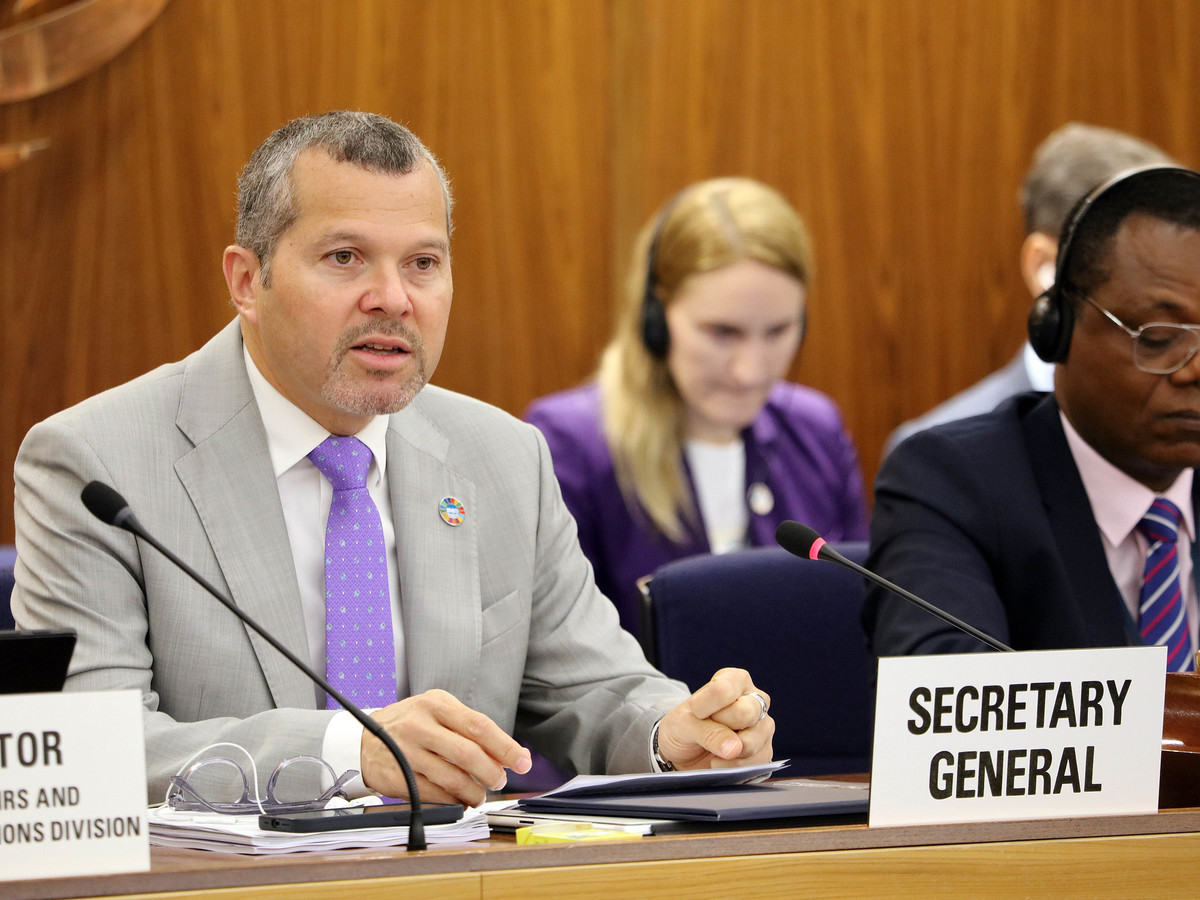MEPC 83: Climate advocates slam IMO’s approved framework
Climate advocates have criticised the compromise draft framework approved at the IMO today, claiming it lacks ambition, encourages adoption of unsustainable marine fuels and risks delaying a real transition to low- and zero-emission fuels.
 PHOTO: IMO Secretary-General Arsenio Dominguez at a Marine Environment Protection Committee meeting. IMO
PHOTO: IMO Secretary-General Arsenio Dominguez at a Marine Environment Protection Committee meeting. IMO
IMO member states have voted in favour of a compromise two-tiered greenhouse gas (GHG) intensity reduction plan after a week of negotiations failed to reach a consensus on a flat-rate levy.
GHG fuel intensity (GFI) reduction targets will tighten over time, ranging from 4–17% in 2028 to 30–43% by 2035. The MEPC plans to review and further tighten targets for 2036–2040 at another MEPC in 2032. According to the draft framework, the base reduction target should reach 65% by 2040.
Concerns over unsustainable fuels
While the targets signal “momentum for alternative marine fuels,” they may end up promoting “forest-destroying first generation biofuels” to meet GFI targets, warns Faïg Abbasov, shipping programme director at Transport & Environment.
“Without better incentives for sustainable e-fuels from green hydrogen, it is impossible to decarbonise this heavy polluting industry. The ball is now in the court of individual countries to implement national policies to open a life-line to green e-fuels,” Abbasov adds.
Another non-profit is concerned that the IMO framework will encourage use of fossil LNG as a marine fuel.
“The IMO is not just failing on climate - it’s actively enabling a methane lock-in,” Elissama Menezes, director of Equal Routes argues.
“The refusal to adopt a 1.5°C-aligned carbon levy that supports the world’s most vulnerable has left the least developed behind. And while methane-based fuels like LNG face growing scrutiny worldwide, the IMO is effectively leaving it to others to regulate their climate impact,” she says.
Not ambitious enough
The approved text “misses even IMO's baseline - leaving the 2030 decarbonisation target dead in the water, with potential disastrous long-term impacts for people and the planet,” Anaïs Rios, shipping policy officer at Seas At Risk argues.
A ‘missed opportunity’
Bastien Bonnet-Cantalloube, an expert on aviation and shipping decarbonisation at Carbon Market Watch, points out several shortcomings in the approved draft: "Not enough emission reductions, not enough emissions priced, not priced high enough, not enough revenues.”
“By ignoring the problem, the IMO won’t make it disappear,” he says, adding that regional governments and the shipping industry need to devise “more ambitious” measures to compensate for the IMO’s “blatantly weak deal.”
By Konica Bhatt
Please get in touch with comments or additional info to news@engine.online





